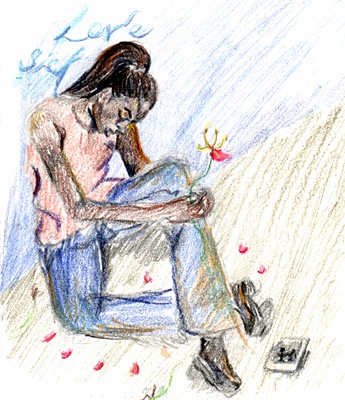All Nonfiction
- Bullying
- Books
- Academic
- Author Interviews
- Celebrity interviews
- College Articles
- College Essays
- Educator of the Year
- Heroes
- Interviews
- Memoir
- Personal Experience
- Sports
- Travel & Culture
All Opinions
- Bullying
- Current Events / Politics
- Discrimination
- Drugs / Alcohol / Smoking
- Entertainment / Celebrities
- Environment
- Love / Relationships
- Movies / Music / TV
- Pop Culture / Trends
- School / College
- Social Issues / Civics
- Spirituality / Religion
- Sports / Hobbies
All Hot Topics
- Bullying
- Community Service
- Environment
- Health
- Letters to the Editor
- Pride & Prejudice
- What Matters
- Back
Summer Guide
- Program Links
- Program Reviews
- Back
College Guide
- College Links
- College Reviews
- College Essays
- College Articles
- Back
The Reading Room MAG
I have been hearing about Haiti all my life. My parents first got involved in 1991 when my father went to Haiti as part of a church group. While there, he visited a school called École Agape and realized that it didn't take a lot of money to make a difference there. He and my mother, who is a literacy specialist, joined our church committee to help the school.
When I was four, I can remember sitting in my living room, filling boxes with dolls to send to the girls at the school. I used to go with my dad to scour the shelves for dolls at Toys 'R' Us and Target. If we could find a good deal, we'd come home with bulging bags, leaving nothing behind but dust.
By 2005, my parents had gone to Haiti three more times and had come to believe that education was the key to helping this French-speaking country. Haiti is the poorest country in the western hemisphere and suffers from an extreme, almost incomprehensible level of poverty. By educating the younger generation, we felt we could give the country a chance for a better future. But few schools had books and even fewer had libraries.
Thus we began the Reading Room, a nonprofit organization that promotes literacy in Haiti. We began to send French books, school supplies, and toys to schools serving poor children. When our organization was first formed, I used to spend hours in our base of operations (our basement) scraping price tags off books, cutting tags off stuffed animals, and helping to pack boxes for shipment.
By the time I was seven, I was going to Montreal regularly to help pick out French books. I remember once at a conference, my parents had set up a booth representing the Reading Room. Soon, I was running around the conference room, my ponytail bobbing as I went up to booths and said, “Hi, I'm Sarah Wicks from the Reading Room. Come over and see what we're doing in Haiti!”
It wasn't a particularly normal experience for a child from suburban Connecticut, but I only realized this later. At the time, it felt as natural as breathing. Going into the basement of my house and seeing shelves stocked with French children's books seemed normal. Current events in Haiti was as common a dinner discussion topic as my day at school.
I've always viewed Haiti as my country, and when the January 12, 2010, earthquake struck, I was devastated. That night my dad interrupted my dance class, saying, “We've got work to do.” I didn't hesitate. Without a backward glance, I was out the door and in the car. As soon as we got to his office we started e-mailing friends and family to ask for support for relief efforts. Within a few days, we were shipping tents and tarps to the schools and sending money for food.
After the earthquake killed 330,000 Haitians, the whole world was paying attention. Now, three years later, the world's attention has moved on to other things. People assume that Haiti is being taken care of. But the last time I was there, we drove by their capitol building and it was still rubble. I'll always remember that. It just reinforced what I already knew: Haiti needs help.
My first trip to Haiti was in 2011. I went with my parents, brother, and some friends. That was when I decided to really dedicate myself to the cause. You can watch the news. You can see pictures of tent cities, rubble, and people crying from hunger and sickness. You can be told the country is lacking education and hope. But you don't really know what that means until you hold a child in your arms who's clinging to you like you're her life raft. You don't know until you give a girl her first doll or her first book and see the happiness on her face as she realizes she can keep it.
I don't work for Haiti because of my parents. I do it because I love the people. I believe they deserve a chance to lead a life where there's food on the table, a doctor when needed, and as many books to read as they want.
Our work is ongoing. We've just developed our first mobile library unit, which we call a “flash library.” We roll bookshelves, floor mats, tables, stools, and beanbag chairs into a classroom and, in just a few minutes, convert it into a bright, colorful library with over 700 books. It creates a safe haven for reading that can be quickly stored and put back together the next day.
I contributed to that design. I'm not just scraping stickers off books anymore. I can see my hand in something that may revolutionize reading in a third-world country. And I think that's pretty amazing.

Similar Articles
JOIN THE DISCUSSION
This article has 0 comments.
